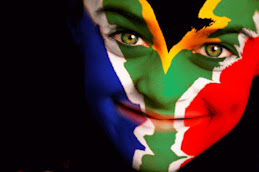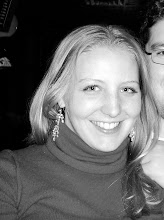I make my bed and tidy up my room every morning. For those of you who know anything about  my housekeeping inclinations, this is an extraordinary feat. I can probably count on two hands the number of times I made my bed in my Boston apartment. It’s a simple discipline, but it reminds me daily of the host/guest relationship. My mom taught me the polite thing to do when you are an overnight guest is to make the bed in which you slept. This practice keeps me mindful that I will always be a guest of my host family.
my housekeeping inclinations, this is an extraordinary feat. I can probably count on two hands the number of times I made my bed in my Boston apartment. It’s a simple discipline, but it reminds me daily of the host/guest relationship. My mom taught me the polite thing to do when you are an overnight guest is to make the bed in which you slept. This practice keeps me mindful that I will always be a guest of my host family.
Being a guest brings a different sort of awareness to one’s interactions. I make an effort not to interfere with anyone’s daily routine (by spending too much time in the shower), but also to be more sociable than my introverted tendencies incline me to be (by spending a lot of time in the kitchen). After living by myself for two years, living with a family has been an adjustment. I’m discovering that I’m not used to living in relationship. I’m accustomed to doing things on my own and if not alone then with people of my own choosing. In SA there’s a much stronger emphasis on relationships on all levels than in the US. People are defined not exclusively as individuals, but by the quality of their relationships. There’s a saying, “I am, because we are.”
My mom, in her infinite wisdom, loved to tell me as a kid, “Crystal, you can’t do it alone.” I absolutely hated when she said that. What do you mean I can’t figure out the entirety of SA on my own? I’m a capable individual, right? (Yes, I realize how incredibly ridiculous that sounds.) At times it’s difficult for me to ask questions, because having to ask is an admission that I don’t have the answer already. Sometimes I feel like I’m asking a hundred questions a day. It’s humbling to acknowledge that my hosts have a wealth a knowledge and experience to share with me; that I can’t figure this all out of my own. I’m thankful that I can’t, because cross-cultural living is too complicated to figure out by myself.
you can’t do it alone.” I absolutely hated when she said that. What do you mean I can’t figure out the entirety of SA on my own? I’m a capable individual, right? (Yes, I realize how incredibly ridiculous that sounds.) At times it’s difficult for me to ask questions, because having to ask is an admission that I don’t have the answer already. Sometimes I feel like I’m asking a hundred questions a day. It’s humbling to acknowledge that my hosts have a wealth a knowledge and experience to share with me; that I can’t figure this all out of my own. I’m thankful that I can’t, because cross-cultural living is too complicated to figure out by myself.
 As an American raised in the ideals of rugged individualism and the self-made person, the idea of living in relationship is at times jarring. I’m not used to being accountable to other people about where I’ll be and what I’m doing with my time. But on a more profound level, I’m not used to being defined as someone’s daughter or someone’s co-worker. I’m just Crystal—not Crystal living with the Dlaminis, or Crystal working with Mrs. Mahaye at the crèche, or Crystal attending the Machibesa congregation. Those are all things I’m used to compartmentalizing, not things with which I define myself. I think this discomfort is a result of a need to rethink how I view living in relationship by acknowledging that I do live in relationship. As much as I like to think I can do it on my own, I can’t. I don’t believe that’s an admission of weakness. It’s a belief in the strength of living in community. We live interdependently, relying on one another. We have to. I am because we are.
As an American raised in the ideals of rugged individualism and the self-made person, the idea of living in relationship is at times jarring. I’m not used to being accountable to other people about where I’ll be and what I’m doing with my time. But on a more profound level, I’m not used to being defined as someone’s daughter or someone’s co-worker. I’m just Crystal—not Crystal living with the Dlaminis, or Crystal working with Mrs. Mahaye at the crèche, or Crystal attending the Machibesa congregation. Those are all things I’m used to compartmentalizing, not things with which I define myself. I think this discomfort is a result of a need to rethink how I view living in relationship by acknowledging that I do live in relationship. As much as I like to think I can do it on my own, I can’t. I don’t believe that’s an admission of weakness. It’s a belief in the strength of living in community. We live interdependently, relying on one another. We have to. I am because we are.
 my housekeeping inclinations, this is an extraordinary feat. I can probably count on two hands the number of times I made my bed in my Boston apartment. It’s a simple discipline, but it reminds me daily of the host/guest relationship. My mom taught me the polite thing to do when you are an overnight guest is to make the bed in which you slept. This practice keeps me mindful that I will always be a guest of my host family.
my housekeeping inclinations, this is an extraordinary feat. I can probably count on two hands the number of times I made my bed in my Boston apartment. It’s a simple discipline, but it reminds me daily of the host/guest relationship. My mom taught me the polite thing to do when you are an overnight guest is to make the bed in which you slept. This practice keeps me mindful that I will always be a guest of my host family.Being a guest brings a different sort of awareness to one’s interactions. I make an effort not to interfere with anyone’s daily routine (by spending too much time in the shower), but also to be more sociable than my introverted tendencies incline me to be (by spending a lot of time in the kitchen). After living by myself for two years, living with a family has been an adjustment. I’m discovering that I’m not used to living in relationship. I’m accustomed to doing things on my own and if not alone then with people of my own choosing. In SA there’s a much stronger emphasis on relationships on all levels than in the US. People are defined not exclusively as individuals, but by the quality of their relationships. There’s a saying, “I am, because we are.”
My mom, in her infinite wisdom, loved to tell me as a kid, “Crystal,
 you can’t do it alone.” I absolutely hated when she said that. What do you mean I can’t figure out the entirety of SA on my own? I’m a capable individual, right? (Yes, I realize how incredibly ridiculous that sounds.) At times it’s difficult for me to ask questions, because having to ask is an admission that I don’t have the answer already. Sometimes I feel like I’m asking a hundred questions a day. It’s humbling to acknowledge that my hosts have a wealth a knowledge and experience to share with me; that I can’t figure this all out of my own. I’m thankful that I can’t, because cross-cultural living is too complicated to figure out by myself.
you can’t do it alone.” I absolutely hated when she said that. What do you mean I can’t figure out the entirety of SA on my own? I’m a capable individual, right? (Yes, I realize how incredibly ridiculous that sounds.) At times it’s difficult for me to ask questions, because having to ask is an admission that I don’t have the answer already. Sometimes I feel like I’m asking a hundred questions a day. It’s humbling to acknowledge that my hosts have a wealth a knowledge and experience to share with me; that I can’t figure this all out of my own. I’m thankful that I can’t, because cross-cultural living is too complicated to figure out by myself. As an American raised in the ideals of rugged individualism and the self-made person, the idea of living in relationship is at times jarring. I’m not used to being accountable to other people about where I’ll be and what I’m doing with my time. But on a more profound level, I’m not used to being defined as someone’s daughter or someone’s co-worker. I’m just Crystal—not Crystal living with the Dlaminis, or Crystal working with Mrs. Mahaye at the crèche, or Crystal attending the Machibesa congregation. Those are all things I’m used to compartmentalizing, not things with which I define myself. I think this discomfort is a result of a need to rethink how I view living in relationship by acknowledging that I do live in relationship. As much as I like to think I can do it on my own, I can’t. I don’t believe that’s an admission of weakness. It’s a belief in the strength of living in community. We live interdependently, relying on one another. We have to. I am because we are.
As an American raised in the ideals of rugged individualism and the self-made person, the idea of living in relationship is at times jarring. I’m not used to being accountable to other people about where I’ll be and what I’m doing with my time. But on a more profound level, I’m not used to being defined as someone’s daughter or someone’s co-worker. I’m just Crystal—not Crystal living with the Dlaminis, or Crystal working with Mrs. Mahaye at the crèche, or Crystal attending the Machibesa congregation. Those are all things I’m used to compartmentalizing, not things with which I define myself. I think this discomfort is a result of a need to rethink how I view living in relationship by acknowledging that I do live in relationship. As much as I like to think I can do it on my own, I can’t. I don’t believe that’s an admission of weakness. It’s a belief in the strength of living in community. We live interdependently, relying on one another. We have to. I am because we are.







